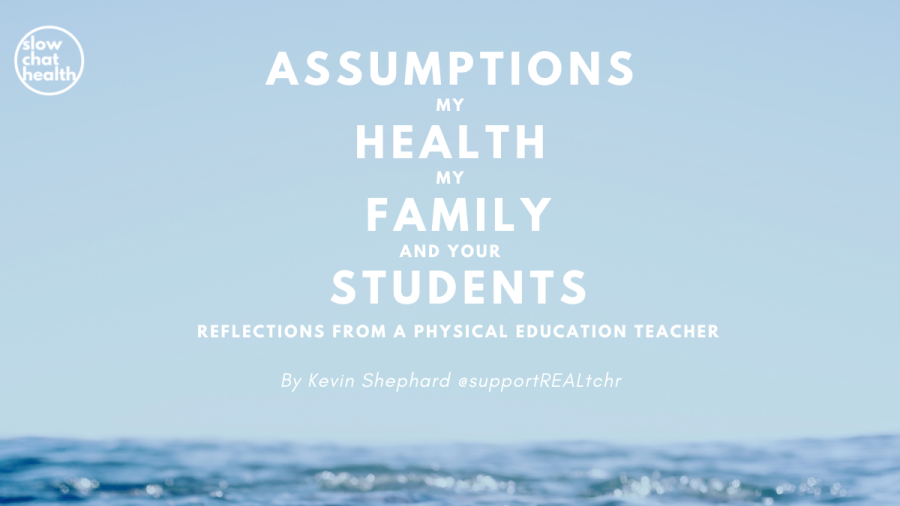About five years ago my health began to decline due to a genetic condition called Ehler’s Danlos Syndrome (EDS). It is a fairly unknown condition, even within the medical community. In short, people with EDS have defective collagen (our connective tissue is described as “chewed up bubble gum” instead of a healthy “rubber band”). There are many different types of the disease, each with varying degrees of severity. While most people associate collagen and connective tissue with joints, it is much more complex than that and affects the entire body.
One of the common issues people with EDS have is how we are perceived by others. Here are some quotes from an online EDS community:
- “I was recently diagnosed with hEDS (one of the many variants) and cervical instability. I keep getting passed around to specialists and none of them believe me…”
- “My wife is having a hard time understanding how consuming this illness is.”
- “So I’m sitting in the car with my daughter 9 yr old when she asks ‘what’s the lady doing?’ Apparently someone was taking pics of my license plate!!! I roll down my window and ask her ‘what’s up?’ She snarls at me, ‘Are you even disabled?’ I show her my placard and it just seems to enrage her more….”
- “My workplace refuses to accommodate me. They just act like there’s nothing wrong because they can’t see it.”
And I’m sure my former students made assumptions about me during the last 4 years I had taught. I don’t blame them though. If I were a student I probably would have made some judgments about an instructor who would often lose his train of thought during lectures and struggled with demonstrating certain psychomotor skills. In fact, how I was perceived was something that crossed my mind quite frequently towards the end of my teaching career. This led to reflecting on when I was a student in junior high and how people probably viewed my family.
At that time we were going through a lot of chaos that was mostly hidden from the outside world. My brother’s teachers did not know he had a learning disability and possible psychological disorder (he is currently trying to get that sorted out), my sister’s teachers and friends didn’t know she had a serious mental health condition, and my parents’ co-workers and friends didn’t know they were getting divorced or the problems their family was having. Had people known about these issues, I believe they would have viewed our day to day interactions with them in a different light.
I don’t believe my family is a unique case. We all go through things, often not shared with others, during our lives. When I have a “bad day”, there is a reason for it; and it’s not because I am mean or a bad person. If this is true for me then it must be true for others and I shouldn’t assume the worst in people, including my students. There are no “bad” students, just students who are dealing with “stuff.”
This was highlighted during my student teaching experience (many years ago) when I had a friend who was depressed and suicidal. Since I couldn’t hide my concern for my friend, I decided to use the situation as a teachable moment. I explained to my 8th graders what was happening with my friend and then discussed the issues my family went through when I was their age. I then gave them time to write down issues that they or someone they knew were going through (I would say about 75% of the class took it seriously). Their responses were then categorized, entered into a word cloud (larger words = more students experienced it), and then shared/discussed with the class.
It was by far the most powerful lesson I have ever taught. The activity opened my eyes to what my students were dealing with and changed the way I viewed student behavior. It also helped create and strengthen existing relationships with my students, which in turn improved the class environment for all. For my students, the activity allowed them to recognize that they are not alone in dealing with their issues. While I don’t know how that affected them, my hope is that they were more willing to discuss what is happening in their life and to seek out appropriate support.
My advice is that the next time a student “misbehaves,” remember that their actions do not exist in a vacuum. Try to address the behavior while acknowledging your care for the student. Also, don’t be afraid to be more open about your life. Allowing students to get to know you is just as important as getting to know them.
Thank you to Kevin Shephard for sharing this blog post. You can follow his awesome advocacy work, and access a wealth of great resources via supportREALteachers.org, which is an initiative of the Center for Advancement of Standards-based Physical Education Reform (CASPER), a non-profit 501(c)(3) organization.
Pair this blog post with the following:
Living WIth TED by Kayla McGee
Lyme Disease by Caroline Gajzler
How Legends Are Made by Heather Burd
Have you read the latest Book of the Month recommendation?

